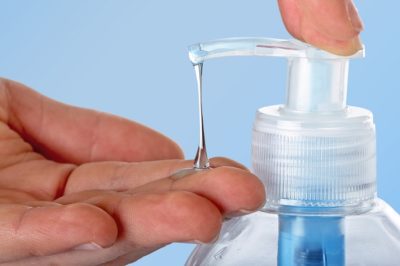Do you use antibacterial soap? If so, now is the time to stop. Recent studies show that antibacterial soaps are not only useless, but they’re also dangerous.
According to Colleen Rogers, Ph.D., a lead microbiologist at the Food and Drug Administration (FDA), there is no evidence that over-the-counter (OTC) antibacterial soap products are any more effective at preventing illness than washing with plain soap and water.
In fact, antibacterial soap products that contain chemicals, such as triclosan, may cause more harm than good.
“New data suggest that the risks associated with long-term, daily use of antibacterial soaps may outweigh the benefits,” Rogers said.
The FDA believes that triclosan and other chemicals contribute to antibiotic-resistant superbugs, and that they also affect hormones.
A study published in Toxicological Sciences found that triclosan affected estrogen, an action which may increase breast cancer risk. Triclosan also suppressed the thyroid in rats. This is only one study in many that show a link between antibacterial soap and hormone disruption.
Everything You Need To Know To Become A Self-Sufficient Homeowner
According to BeyondPesticides.org, triclosan is found in many popular products such as the following soaps:
- Dial Liquid Soap
- Softsoap Antibacterial Liquid Hand Soap
- Tea Tree Therapy Liquid Soap
- Provon Soap
- Clearasil Daily Face Wash
- Clean & Clear Foaming Facial Cleanser
- DermaKleen Antibacterial Lotion Soap
- Naturade Aloe Vera 80 Antibacterial Soap
- CVS Antibacterial Soap
- pHisoderm Antibacterial Skin Cleanser
However, not all antibacterial hand sanitizers and soaps use triclosan. Most — like Purrell — contain alcohol. But alcohol can be harmful, especially to children. After all, just a small 2 ounce container of alcohol-based hand sanitizer may contain as much alcohol as 4 shots of vodka!
So if you have young children or just want to avoid the harmful effects of antibacterial soap and triclosan, what should you do?
A healthier alternative to chemical-laden hand sanitizers is to use only some made from essential oils. Therapeutic essential oils have antibacterial and antiviral properties, so they are very effective at killing germs and preventing infections.
New All-Natural Capsule Protects You From Dangerous Toxins And Pollutants!
Consider these facts about essential oils:
- Essential oils contain phenols, monoterpenes, and ketones — the same chemical molecules used by pharmaceutical companies to make drugs.
- Essential oils protect you from illnesses because bacteria and viruses can’t develop a resistance to genuine essential oils.
- Essential oils have virtually no side effects if taken properly.
- Essential oils contain antioxidants that protect the body from disease.
- Essential oils are antibacterial, antifungal and antiseptic.
- Essential oils detoxify cells and blood in the body.
- Essential oils metabolize like other nutrients.
- Essential oils have healing properties because they transport oxygen to the cells, triggering a healing response.
- Essential oils are able to circulate throughout the body within 20 minutes of using them.
- Essential oils promote physical, emotional and spiritual well-being.
Essential Oil Hand Sanitizer Recipe
Instead of using antibacterial hand sanitizer, make your own using essential oils! This easy, DIY recipe will kill germs and doesn’t contain any harmful chemicals. In fact, it’s so gentle that even young children can use it! Plus, it will leave your hands feeling soft.
Here’s what you’ll need:
- 4 ounce small glass spray bottle
- 4 ounce distilled water
- 2 teaspoons aloe vera gel
- 1 tablespoon vitamin E oil
- 10 drops each of the following essential oils: lemon, lime and Melaleuca.
Directions: Fill the bottle with 2 ounces of water. Add the aloe vera gel, vitamin E oil, and the essential oils. Fill with remaining water. Put lid on and shake well. To use: spray on hands and rub together.
So if you have any bottles of antibacterial hand sanitizer that are full of chemicals, throw them out! After all, it won’t protect you from germs and may actually be harmful. Use essential oils instead — they’re much more effective at controlling germs than the OTC hand sanitizers. And once you try this recipe, you’ll love it so much that you’ll want to share with all your friends and family. Or, perhaps even give it away as a Christmas present.
Do you use homemade hand sanitizer? If so, what is the recipe? Write your response in the comments section below:
 Off The Grid News Better Ideas For Off The Grid Living
Off The Grid News Better Ideas For Off The Grid Living





